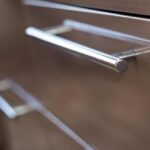The devastating effects of a house fire cannot be overstated, and it can be incredibly difficult to stop one once it has taken hold. This is why it is incredibly important to take every measure you can to prevent a house fire from starting. The following tips are not exhaustive, but will provide several useful and easily actionable strategies to significantly reduce the likelihood of a house fire.
Never leave open flames unsupervised
There is no such thing as overstating the obvious when talking about fire safety. Any open flame should be watched carefully whenever it is active. The most common types of open flames around the house will be gas cookers, candles and barbecues. You should also try to ensure that any areas that commonly see open flames have a fire extinguisher nearby.
This also extends to leaving children unsupervised around matches and flames. Children should be taught of the dangers of fire early on, and that matches aren’t toys or things to be played with.
Be careful around heaters in winter
Similarly, other sources of heat such as heaters and stoves should not be covered or have flammable materials like clothing left on them. It is also best to not leave them unattended for long periods of time, just in case. You should also make sure they are properly maintained and stored when not in use.
Avoid overloading power outlets
Overloading a power outlet occurs when too much current is being drawn through the outlet. This can happen because too many high-draw appliances are plugged into one outlet, or because too many appliances are plugged in. You will find that powerboards and double adaptors are often the enablers of overloaded outlets. ‘Piggybacking’, that is, plugging a double adaptor in a double adaptor is particularly dangerous and should never be done. Common places where overloaded power outlets could occur are near computers, in garages and in kitchens. If you find that you are often using a lot of appliances in one power outlet you should speak to your local electrician about installing additional outlets. You can read more about how to avoid an overloaded power outlet here.
Replace old and worn appliances early
Old wiring can be a great danger, especially if the insulation has cracks or chunks missing. The heat generated from the wiring can set things alight, and will also pose the danger of electric shocks. Keeping an eye out for electrical leaks can be a very good way to deduce if an appliance has damaged wiring. You should also be sure to keep all your appliances well maintained during their lifetime.
Test and maintain your smoke alarms regularly
Smoke alarms are your most valuable defenses against a house fire as you will not be woken by the smell of smoke. Smoke alarms should be tested monthly, and cleaned of dust often. You should ensure you have an adequate number of smoke alarms to efficiently cover the house, and ensure all smoke alarm installations are conducted by a licensed electrician.
Be extra careful if you’re a smoker
Being a smoker poses additional dangers because of the lit end of the cigarette. Smokers should be careful to ensure their cigarette butts are properly extinguished, and should avoid smoking underneath smoke alarms to prevent false alarms.
Have an established exit plan
Despite the ideal situation being that you will never encounter a house fire, you should always be prepared for the worst. Discuss with your family the best ways to exit your home in the case of a house fire, and make sure these routes are kept clear of trip hazards. Stay low when exiting and, once you’re out, stay out and call 000 immediately.
Review your plan and keep your family informed
Just because you’ve gone over the plan once doesn’t mean it will be 100% effective forever. People can forget the finer details of things if they do not practise them, and things can change. New furniture can create additional obstacles, and make sure to be careful about locking any doors inside the house.
Don’t stop with the indoors
While bushfire safety is an entirely different topic, there are things you can do outside your house to reduce the likelihood and effects of a house fire. The first is to make sure your gutters and surrounding areas are clear of dry leaves and any other flammable debris. You should also be careful if you have a shed or garage that any flammable chemicals are stored as securely as possible.
Speak to an electrician
Of course, this list cannot take into account the specifics of your home and its occupants. If you still feel you are underprepared, or want more specific advice, you should speak to your local residential electrician.












